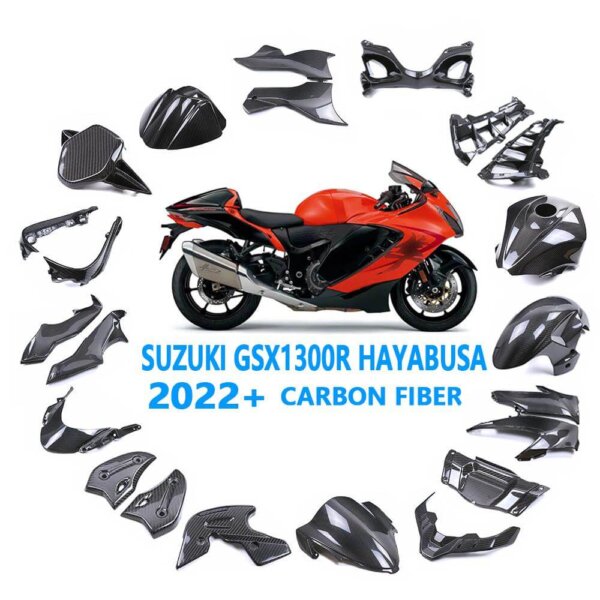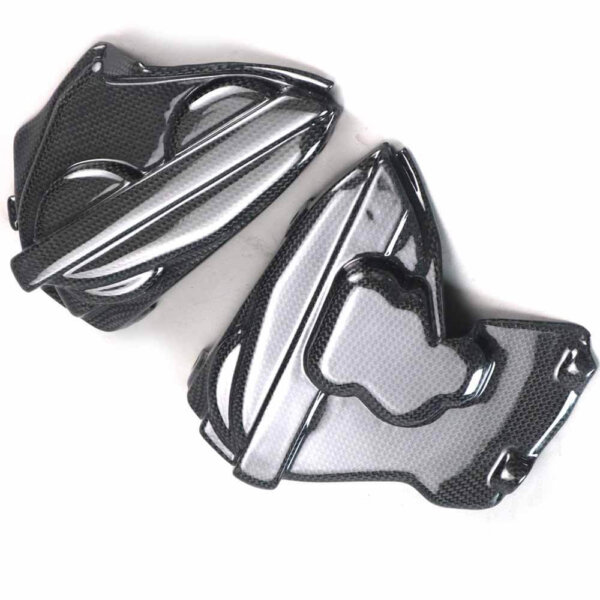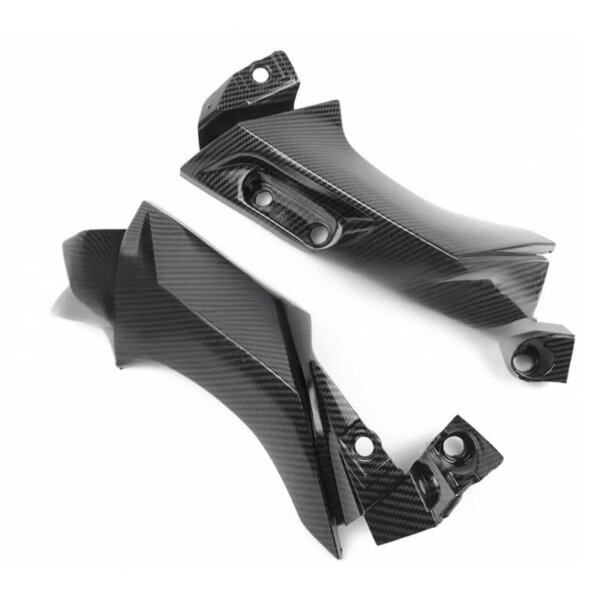How to Make Carbon Fiber: 10 Steps Simple Guide
What Is Carbon Fiber?
Carbon fiber is a strong and light material. It is made of thin strands of carbon. These strands are even thinner than a human hair! Carbon fibre (also spelled this way) is used to make cars, bikes, planes, and sports gear.
“Carbon fiber is five times as strong as steel but weighs much less. This makes it perfect for things that need to be both strong and light.” – Engineering Expert
Why Use Carbon Fiber?
Carbon fiber has many good points:
- It is very strong
- It is very light
- It does not rust
- It can be shaped in many ways
- It looks cool
This is why many people make carbon fiber parts for cars, bikes, and other things.
What You Need to Make Carbon Fiber
To work with carbon fiber, you need these tools and materials:
| Tools | Materials |
|---|---|
| Scissors | Carbon fiber fabric |
| Gloves | Epoxy resin |
| Mixing cups | Release wax |
| Mixing sticks | Mold |
| Brush | Plastic sheet |
| Clamp | Sandpaper |
Basic Steps to Make Carbon Fiber Parts
1. Plan Your Project
Before you start with carbon fiber, you need to know what you want to make. Start with simple shapes. Big or hard shapes can be time-consuming.
2. Make or Get a Mold
The mold is what gives your carbon fiber parts their shape. You can:
- Buy a ready-made mold
- Make one from wood
- Use an old part as your mold
Put release wax on your mold so the carbon fiber will not stick to it.
3. Cut the Carbon Fiber Fabric
Carbon fiber fabric comes in sheets with different weave types. The most common is a twill pattern. Cut the fabric to fit your mold plus a bit more around the edges.
4. Mix the Resin
Epoxy resin is what makes the carbon fibre hard and strong. Most resin comes as a two-part mix:
- Pour part A and part B in a cup
- Mix well but not too fast (to avoid air bubbles)
- Use it soon, as it will start to get hard
Be safe! Wear gloves when you work with resin.
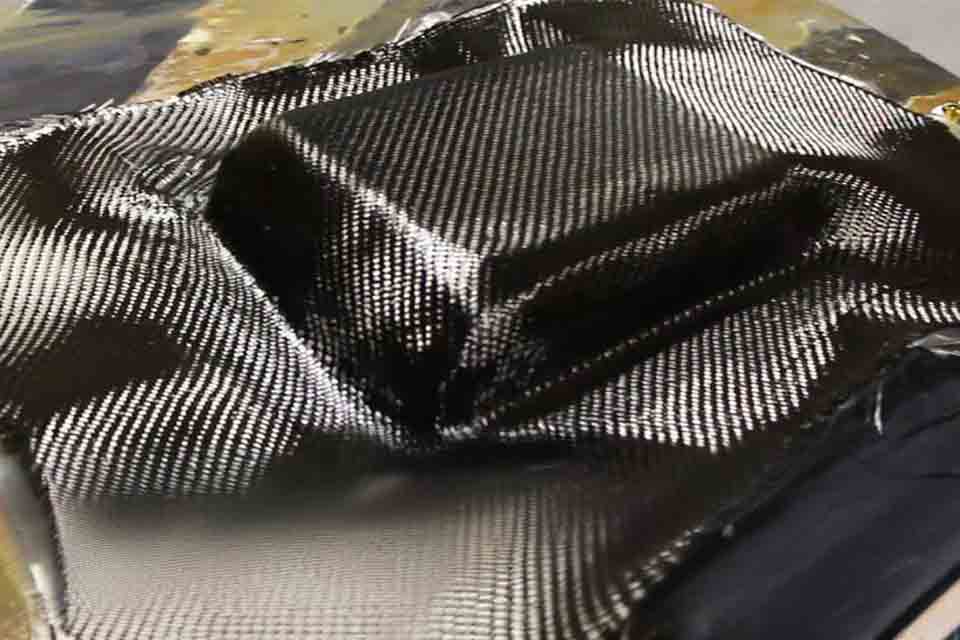
5. Wet the Carbon Fiber
Now comes the wet layup step:
- Put your carbon fabric on a flat spot
- Use a brush to wet the fabric with resin
- Make sure all the carbon fiber gets wet
- Do not use too much resin – just enough to wet all the fiber
6. Place on the Mold
Put the wet carbon fiber on your mold:
- Start from one end and smooth it down
- Push out any air bubbles
- Add more layers if you need a stronger part
- Each new layer is part of the layup
7. Remove Extra Resin
Too much resin makes your part heavy and not as strong. Use a plastic tool to push out extra resin.
8. Apply Pressure
You need to compress the carbon fiber as it dries:
- Use a vacuum bag method
- Or use clamp and flat boards
- Or try vacuum infusion for big parts
9. Let It Cure
Now you wait for the resin to cure:
- Check your resin box for cure time
- Most take 24 hours at room heat
- Keep the part still while it cures
- Some people use heat and pressure to cure faster
10. Remove from the Mold
After the resin is fully hard:
- Take off any wrap or bags
- Gently pull the finished part from the mold
- Trim the rough edges
- Sand any spots that need to be smooth
Types of Carbon Fiber
Not all carbon fiber is the same. Here are the main types:
- PAN (made from polyacrylonitrile)
- Pitch (made from oil)
- Rayon (less common now)
Most home users work with PAN-based carbon fibre.
Different Ways to Make Carbon Fiber Parts
There are a few main ways to work with carbon fiber. Here they are, from simple to hard:
Wet Layup
This is what we just went over. It is the most common way for home users to make carbon fiber parts.
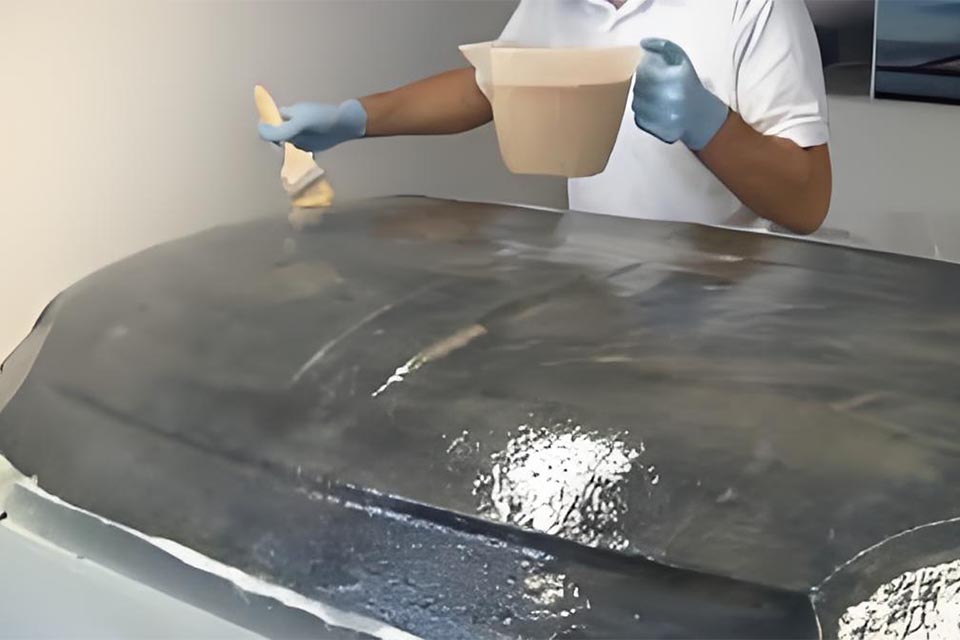
Pre-preg Method
Pre-preg or pre-impregnated carbon fiber comes with resin already in it. It needs to:
- Stay cold until you use it
- Be heated to cure
- Often needs an autoclave (a big hot oven)
This is how many pro carbon fiber reinforced parts are made.
Vacuum Infusion
With this method:
- The dry carbon fiber fabric is put on the mold
- It is sealed in a bag
- Air is sucked out
- Resin is pulled in to infuse all the fiber
This is good for big parts and can give very strong results.
Making Real Carbon Fiber from Scratch
The steps above show how to work with carbon fiber fabric that is already made. But how does carbon fiber itself get made? Here is the manufacturing carbon fiber process:
- Start with a polymer like polyacrylonitrile
- Pull it into thin filament strings
- Heat these strings at high heat without air
- This turns the strings into carbon
- The carbon fiber starts out as single strand fibers
- These are woven into a fabric
This needs specialized equipment and is done in factories.
Safety Tips When Working with Carbon Fiber
Working with carbon fiber can be fun but you need to be safe:
- Wear gloves when touching resin
- Wear a mask to avoid breathing carbon fiber dust
- Work in a room with good air flow
- Keep food away from your work area
- Clean up spills right away
Projects to Try
If you want to learn how to make carbon parts, start small:
- A simple flat plate
- A phone case
- A small box
- A bike part
As you get better, you can make more complex carbon fiber parts.
Common Mistakes to Avoid
Many people make these mistakes:
- Using too much resin
- Not getting all air bubbles out
- Being in a rush during cure time
- Making a part too thin and weak
- Trying a too complex shape for your skill level
How Carbon Fiber Compares to Other Materials
How does carbon fiber stack up to other engineering materials?
| Property | Carbon Fiber | Aluminum | Steel | Plastic |
|---|---|---|---|---|
| Weight | Very Light | Light | Heavy | Light |
| Tensile Strength | Very High | Medium | High | Low |
| Compressive strength | Medium | Medium | High | Low |
| Flexural strength | High | Medium | Medium | Low |
| Modulus | High | Medium | High | Low |
| Cost | High | Medium | Low | Very Low |
Where Carbon Fiber Is Used
Carbon fibre is used in many places where a lightweight material is needed:
- Aerospace parts for planes
- Automotive racing parts
- Sporting goods like tennis rackets and golf clubs
- Bikes and bike parts
- Medical devices
- Advanced wearable robotics, such as carbon fiber robotic exoskeletons,
where high stiffness, low weight, and precise force transfer are essential
Music equipment - Music equipment
Advanced Carbon Fiber Methods
If you get really into carbon fiber manufacturing, you might try:
- Using a CNC to make precise molds
- Making high-performance parts with special layup patterns
- Adding other materials to make composite materials
- Using different types of resin like polyester resin or thermoset types
Final Thoughts
Making things with carbon fiber can be fun and rewarding. Start simple, be patient, and soon you’ll be making amazing carbon fiber parts!
The complexity of the part will decide how hard it is to make. With practice, you can make cost-effective and cool finished product items that are both strong and light.
Want to learn more? Visit our custom composite page or check out our guide on how to make a carbon fiber mold.
Ready to start? Get supplies from our carbon factory or learn more about making your own carbon fiber parts.
Call us/Whatsapp: +86 13626191009
Email: [email protected]

